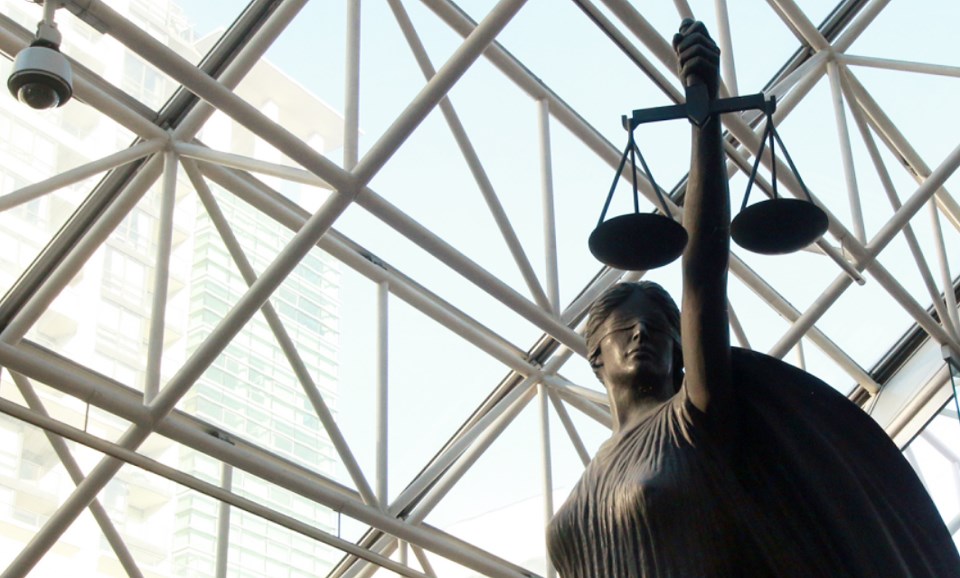A West Vancouver mom of three, whose high standard of living is partly supported by more than $17,000 in annual child tax benefits, has secured interim child and spousal support from her ultra-high net worth husband who resides in China.
On Dec. 14 at Supreme Court of B.C., Master Kimberley Robertson issued an interim order for businessman Wei Chen to pay $16,062 in child support to ex-wife Nina Zhang, a former music tutor. Chen is also to pay an unspecified monthly spousal support based on an estimated annual income of $1 million and by using the federal Spousal Support Advisory Guidelines.
The support payments will serve to maintain what Robertson described as the high and "luxurious" standard of living that Zhang says Chen previously agreed to support.
The couple landed in court after disputing their respective incomes for the purpose of support payments. Their respective claims are laid out in Robertson's ruling.
The couple married in 2008 in China and legally separated between March 2019 and March 2020 — also a matter of dispute. They had three children, now age eight, 10 and 12. Chen, 52, also has an older child, now age 20, who resided with Zhang, 42, and now attends University of B.C.
Chen is understood to be the CEO of Shanghai Shengchang Pipeline Support Engineering Co. Ltd. and has interests in several other companies. Chen also owns as many as 61 properties in China, now considered by the Chinese Court of Appeal to be joint matrimonial assets.
Chen’s stated in courts here in B.C. and in China that his assets stood in the $70-million to $90-million range although his latest financial statement to the B.C. court put his assets at $41 million. Chen deposed that the COVID-19 pandemic had a “dramatic effect on the construction industry in China, and therefore his business interests.”
Chen submitted his annual income was $155,000 whereas Zhang estimated it to be close to $2.4 million, largely based on the Chinese court’s findings in 2015 that he earned $4.4 million in rental income. Zhang described her ex-husband as a “ultra-high net worth” individual.
Robertson’s interim order settled on an annual income of $1 million for Chen.
Meanwhile, Chen argued Zhang’s income ought to be $200,000 whereas Zhang deposed that she only earned investment income of $11,240 and rental income of $55,235 for a total gross income of $66,476, in 2022. In addition, Zhang received $17,564.42 in child tax benefits from the federal government. (The child tax benefit is issued based on income. The lower the income the higher the payment. The maximum one can receive with three children is $18,825, or $6,275 per child.)
Robertson settled on an income of $200,000 for Zhang, noting it would be possible for her to work as a music teacher in B.C., as she did in China.
“I agree that there is no reason why the claimant (Zhang) cannot work outside of the home, particularly given that a nanny has been used,” stated Robertson. (Zhang appears to be a talented musician, according to the court record showing she worked as an organ instructor at Shanghai Conservatory of Music, and earned about $200,000 in annual income as a music instructor, including tutoring.)
Until March 2023, Zhang and the children had been residing at their home on Willoughby Road, in West Vancouver, purchased for $8.4 million on Aug. 10, 2017.
The couple left the property vacant for one year before Zhang and the children arrived from the United States, where Zhang initially landed after leaving Chen in 2016.
The home, overlooking English Bay from nearby Cypress Mountain, was purchased with a $4.2-million cash down payment. It was recently sold for $6.8 million and $2.7 million was put in a joint trust. It’s unclear where the family resides now.
Zhang’s claim lists the following child expenses: $79,329 for the three children to attend a private school and $320,000 per year for: Chinese classes, math classes, logic classes, French classes, Kumon lessons, English classes, writing classes, science classes, piano lessons, violin lessons, cello lessons, painting classes, choir, orchestras, table tennis training, swimming club and training, tennis and various camps.
Zhang also claimed to take the children on three to four vacations each year, spending around $135,255 per year.
Chen argued in court “many of these activities are unnecessary and that the claimant (Zhang) tends to enrol the children unilaterally without consultation.”
While not knowing the exact details of all the extracurricular classes, Chen listed the following assets he purchased for Zhang and the home, which Robertson noted support a luxurious lifestyle, such as: furniture valued at $500,000, a $60,000 grand piano, a Tiffany diamond necklace valued at $60,000 and various high-end bags valued at over $230,000.
Chen also listed a $300,000 annual life insurance policy fee and acknowledged he purchased five luxury vehicles in cash. However, the vehicles, Chen told the court, were for another person’s benefit, such as his older son (a $60,000 Lexus to commute to university), and not considered to be his assets.
Chen would typically transfer money into Zhang’s bank account to cover her and the children’s expenses, Robertson noted.
Chen deposed, according to Robertson, “that he remains a committed father, and does attempt to come to Vancouver to visit with his children for two or so months per year, primarily during the school’s winter and summer breaks.”



